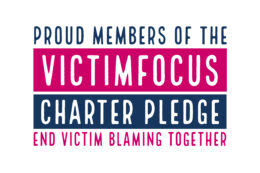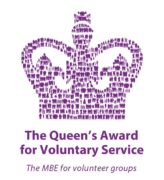Dealing with disclosures
Hearing a disclosure (someone telling you about their abuse) can often be frightening and daunting for the person receiving the disclosure but it is extremely important for the person disclosing that they feel heard and believed. In some cases this may be the first time they have ever voiced what has happened to them. Therefore it is important to convey the following:
- Listen to them without interrupting
- Maintain a calm appearance
- Ensure the environment is appropriate where possible
- Re-assure the person they are doing the right thing
- Convey belief
- Recognise their strength and courage
- Validate their feelings
- Don’t judge them
- Let them regain control
- Be clear about boundaries
- Seek support
How children may tell
It can be extremely difficult for children and young people to tell someone what is happening/has happened to them. Often they struggle to find the words and they may be fearful of what may happen to them or even the perpetrator if they tell. Therefore, it is important that people who work with children are able to recognise the signs and know how to respond appropriately.
Children and young people may disclose abuse in a variety of ways, including:
- directly– making specific verbal statements about what’s happened to them
- indirectly – making ambiguous verbal statements which suggest something is wrong
- behaviourally – displaying behaviour that signals something is wrong (this may or may not be deliberate)
- non-verbally – writing letters, drawing pictures or trying to communicate in other ways.
To help a child disclose you must:
- Show you care. Listen to what they are trying to say, help them open up. Give them your full attention and keep your body language open and encouraging. Reassure them that their feelings are important and convey how brave they have been by talking to you.
- Allow them to take their time. Don’t interrupt the child, let them go at their own pace. Recognise and respond to their body language, keep reassuring them that are doing are really well and allow them to talk when they are ready.
- Show you understand, reflect back what you have understood them to have said and use their language to show them it is their experience.
Barriers to disclosing
For many people it is extremely difficult to disclose what has happened to them. Further barriers that may stop someone disclosing are:
- Family/cultural background
- Fear
- Small community
- Shame
- Language barriers
- Gender identity
- Isolation
- Sexual orientation
- Age
- Myths
- Bond with abuser
- Guilt and self blame
- Denial
It is therefore important for professionals to recognise these barriers when accessing support for the person they are working with and discuss these with a CRASAC worker when making a referral to our services in order for us to be aware of any additional needs this individual may have.
CRASAC provides training to professions on how to respond to disclosures of sexual violence, visit our training page here.
Vicarious trauma
Working with children & young people, vulnerable adults and families who have experienced trauma and or abuse is a highly emotive and complex profession. Professionals can often feel affected by hearing about these traumatic events and by witnessing the considerable impact and distress they can cause. All emotions (unpleasant and pleasant) are contagious. Empathy allows us to relate to those around us facilitating our understanding but empathy, although an amazing ability, can also be problematic if it goes unnoticed and we are not engaging in self-care. As helping professionals, our emotions are therefore vulnerable to provocation through infection with other’s feelings. Sometimes this is an advantage, helping us to feel inside their worlds. At other times, it is not, leading to vicarious trauma. If you find you are suffering from symptoms of vicarious trauma such as low mood, anxiety etc it is important you speak with your supervisor or line manager about how you are feeling. Our helpline is also available to offer you emotional support. You can access our helpline here.
CRASAC provides training on vicarious trauma, visit our training page here.
We can also provide ‘’Clinical Supervision’ for those working with survivors and victims. Clinical supervision provides an environment in which staff can: explore their own personal and emotional reactions to their work; reflect on and challenge their own practice in a safe and confidential environment as well as receive feedback on their skills; and engage in professional development, identify developmental needs and support revalidation. It is also effective at reducing the risk of vicarious trauma.

Training for professionals
CRASAC offers a range of training including bespoke training packages for professionals and employers. For more information please visit our training page here.
Counselling Service
To refer into our counselling service please follow the link below which will take you to our referral process and referral form for professionals
At the moment there is a wait for our counselling services, however we aim to complete an initial assessment as soon as possible after which the individual will be placed on our waiting list. Whilst waiting they will be offered support via our emotional support and helpline workers and we will make any other appropriate referrals to other services and professionals.
ISVA Service
To refer into our ISVA service please follow the link below which will take you to our referral process and referral form for professionals. We do not operate a waiting list for the ISVA service and normally make contact within 48 hours of you referral.







